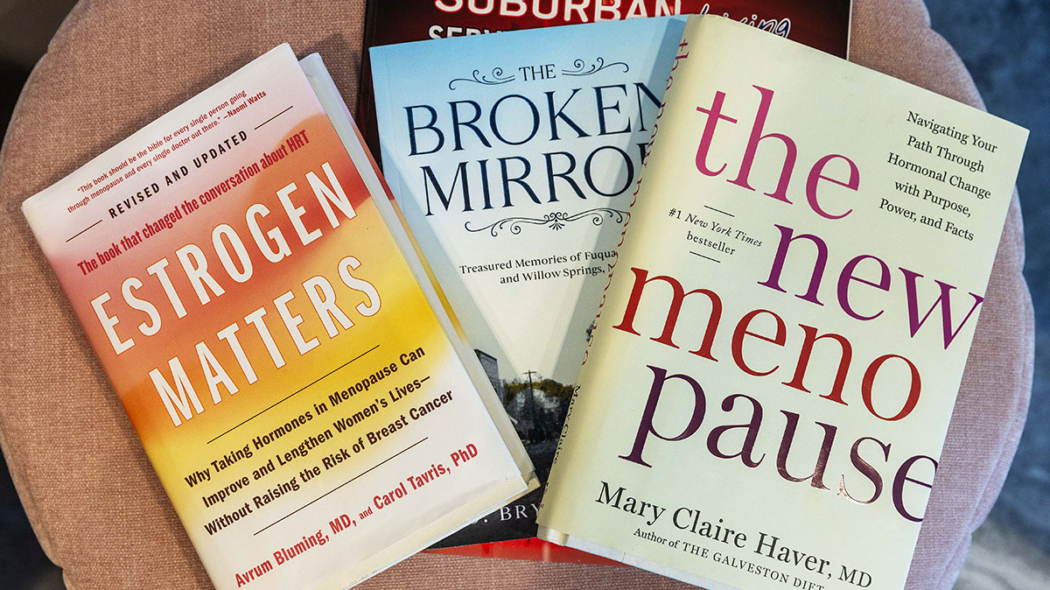The midlife years should be a time of opportunity in a woman’s life: The kids have launched, the puppy trained, and the ladder climbed. Instead of feeling energized for new challenges, many women in midlife — loosely between ages 45 and 55 — feel drained, anxious, and “off.”
Jamie Gallagher experienced those same complaints as she navigated her own period of perimenopause and menopause. As a board-certified nurse practitioner, Jamie regularly treated women with similar symptoms.
“In my own experience with perimenopause and menopause, not being able to find the information and care that felt like it was real … I started doing my own deep dive.”
Jamie discovered The Menopause Society, an evidence-based resource for healthcare professionals and the general public committed to improving women’s health during and after the menopause transition.
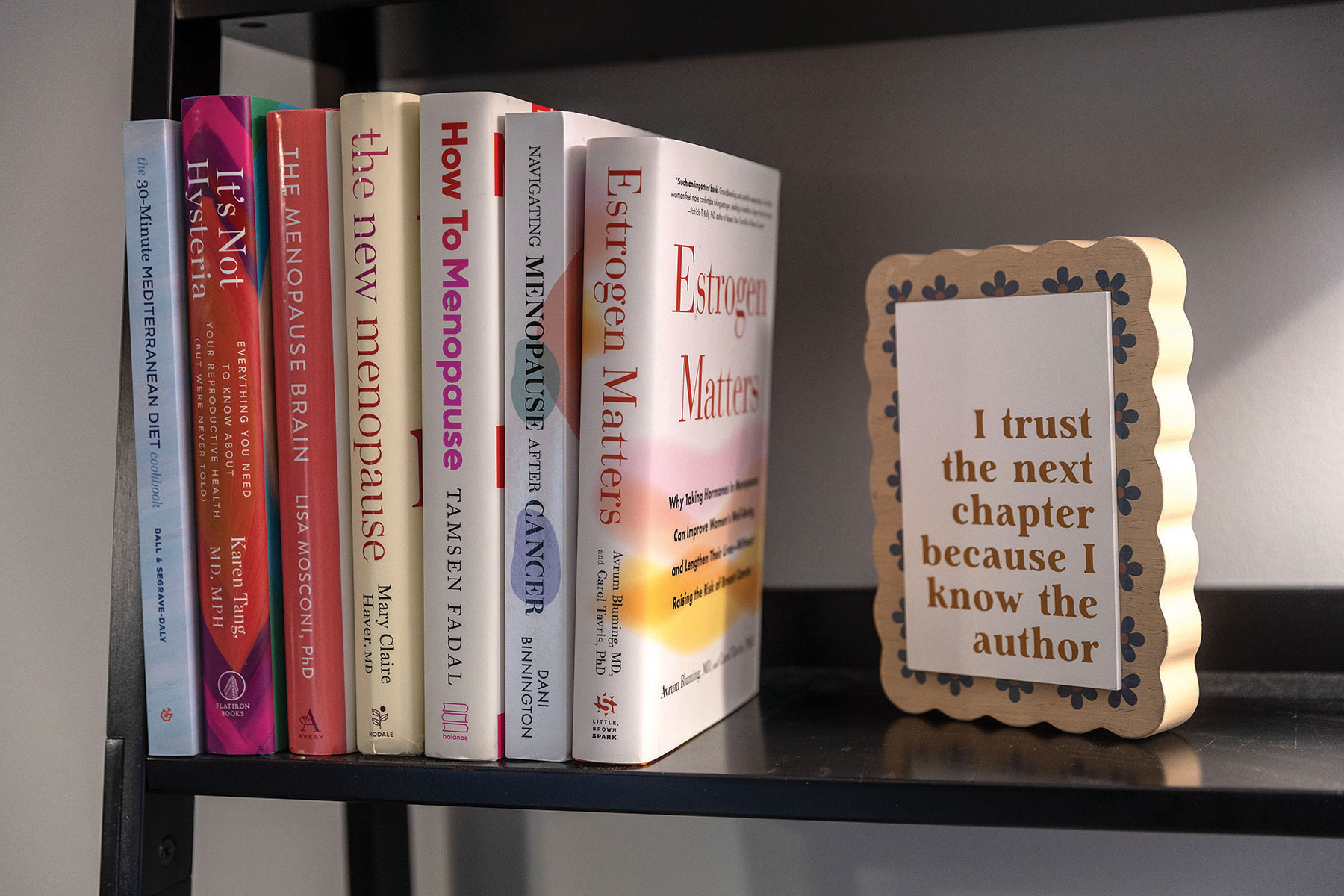
“I realized you can be certified (by The Menopause Society) and I was like, oh, heck yeah — literally so I could understand what was happening to me, because it was directly impacting my career, my relationships, how I felt about myself, and my health in general,” she says.
“The biggest gap in healthcare, in my opinion, is midlife women’s care. … I felt the need to fill that gap,” continues Jamie.
Ultimately leading to Peri & Pause: The Menopause Center in Fuquay-Varina, which Jamie founded more than a year ago and already expanded to a second location in North Raleigh.
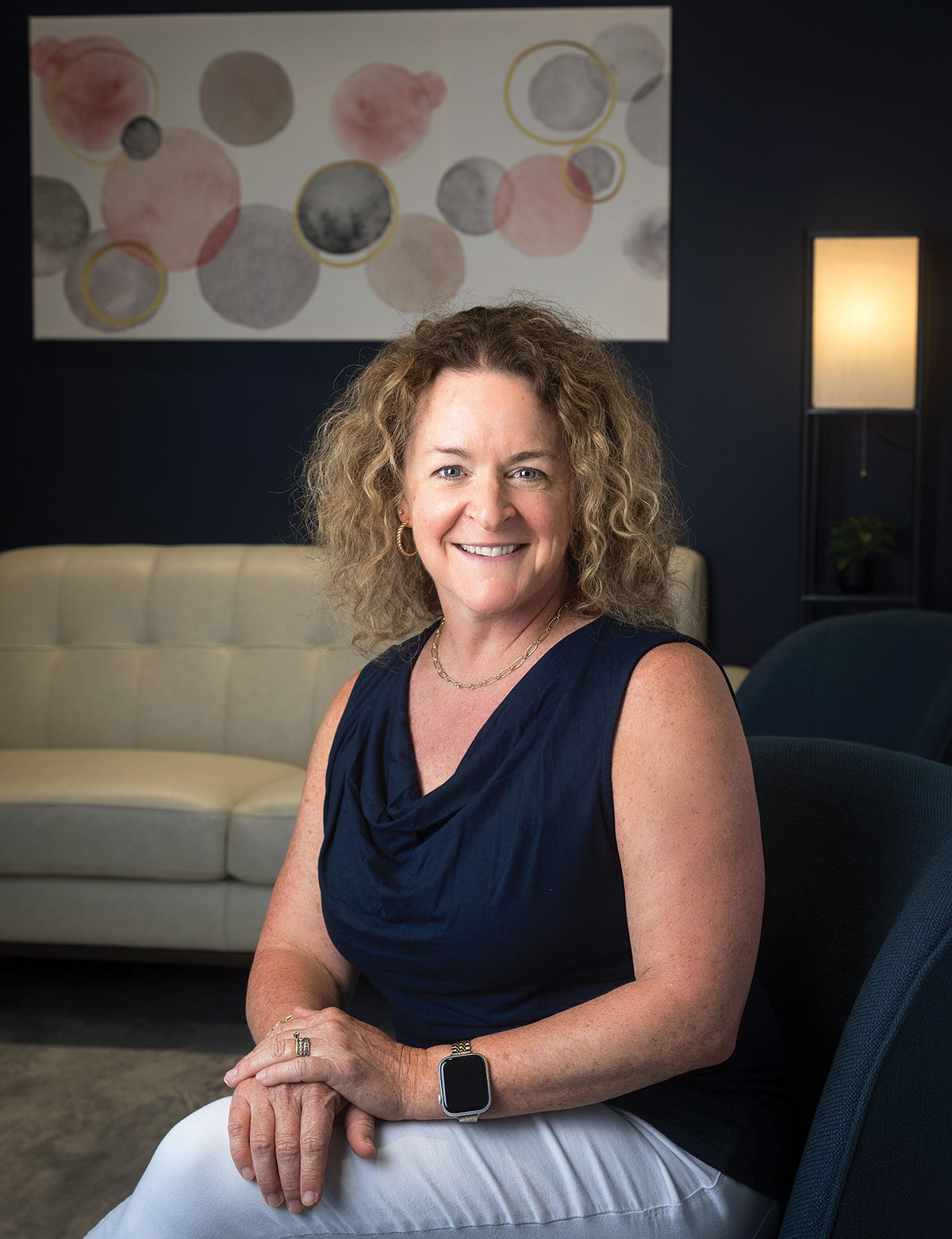
Jamie Gallagher’s own health concerns prompted her to pursue professional certifications in menopause care.
What started as a few virtual appointments grew quickly by word of mouth to a full docket of patients and the need for additional staff.
“Women are not coming in and saying, ‘My wrist hurts.’ They are saying, ‘There’s something wrong and I can’t characterize it. I can’t sleep. I can’t find my words. My left hip hurts. I’ve gained 12 pounds. My hair is falling out. My ears are ringing,’” Jamie says.
“It’s the vague complaints that healthcare has not perfectly defined or is not comfortable talking about yet — that’s what we want to fix.”
The root cause of many of these issues, Jamie says, is that women’s hormones are “going crazy” for about 10 years.
“When we smooth that out, we feel like ourselves and are able to keep our career, be healthier in our marriages, be healthier in our bodies and our minds.”
Hormone therapy was a staple treatment in women’s midlife care 30-plus years ago, Jamie says — until a well-intentioned study resulted in misinterpreted data that caused the practice to fall away. A return to hormone therapy brings hope to many patients and providers during a period of life fraught with stereotypes of irritability and unpleasantness.
“All women do not have to choose hormones, though most women can have hormone therapy at some point in their life, and that truly is the root of menopause — it’s the loss of hormones, the chaos and fluctuation of hormones. Getting those settled down with bioidentical hormone (replacements), which you can get on regular prescription, is what’s missing.
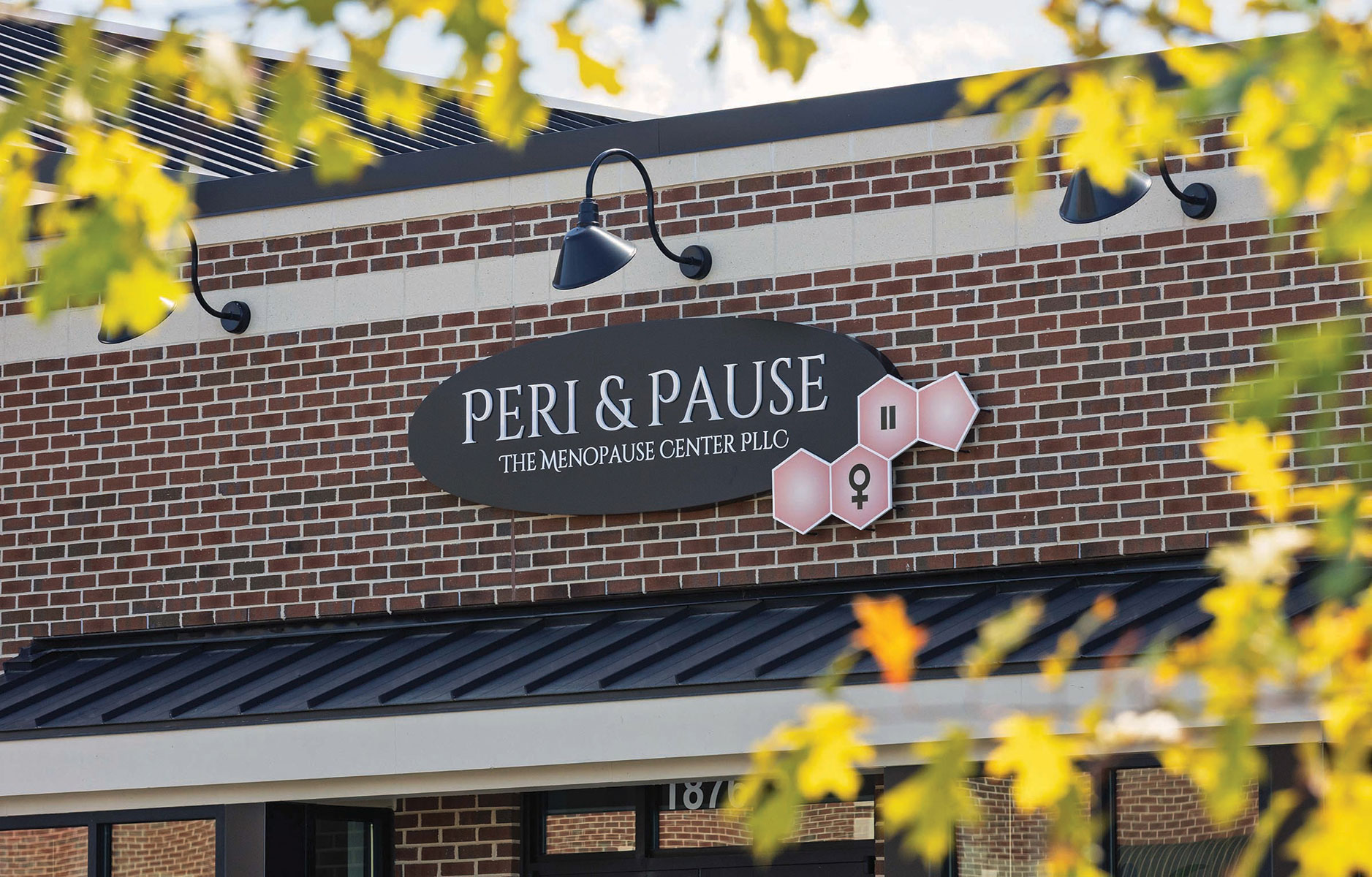
Offices are located on Broad Street in Fuquay-Varina. A second location in North Raleigh opened in October.
The hormones are “nothing new,” reassures Jamie. “Your body recognizes them because they are bioidentical. With estrogen, for example, you bring a patch back and your body is like, ‘Oh, hey girl, where have you been? It’s been a whole mess up in here since you left town.’”
Jamie’s warm and friendly nature is displayed in the offices of Peri & Pause, which were designed to have a distinctly non-medical feel. Calming, relaxing treatment spaces look more like therapy offices than exam rooms, with plush seating and cotton gowns (no crinkly paper gowns in sight).
“Peri & Pause is more about connection and relationships. It’s a place where women can feel like they can tell everything. … Nothing is too much information. Everything helps build your picture, your story,” says Jamie.
The providers that work alongside Jamie at Peri & Pause have been handpicked — not for their menopause expertise, which Jamie insists can be taught — but for their ability to build relationships, their intelligence, and their devotion to midlife women’s care.
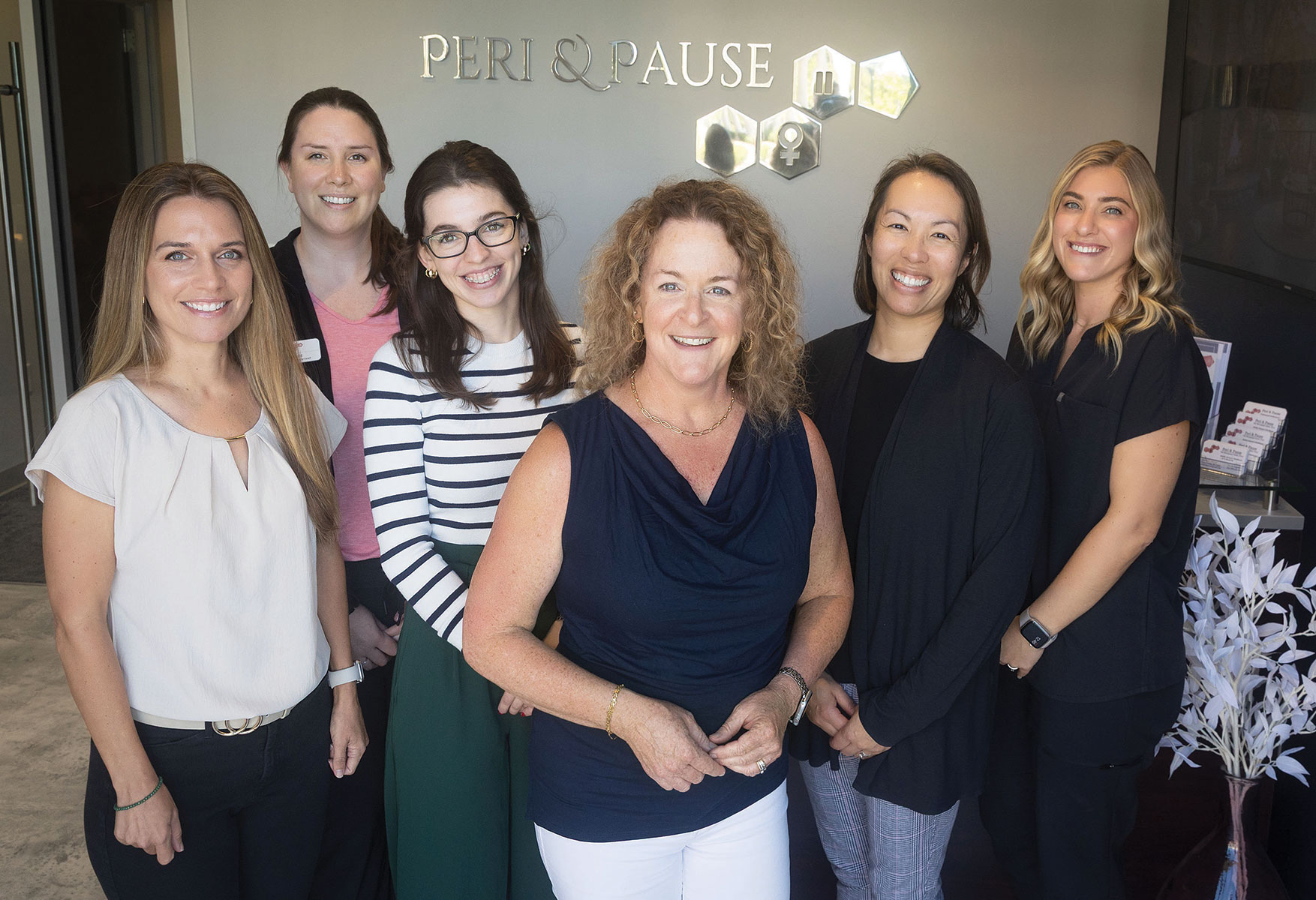
Peri & Pause providers excel at building relationships and delivering compassionate, evidence-based care.
“It’s a different kind of healthcare. It’s a lot of energy back and forth in validation, but that is so therapeutic … Giving a woman the power of information, the knowledge, reassurance, and absorbing that back from her and reading what she needs emotionally.”
Some women may experience perimenopause symptoms as early as mid-to-late 30s, manifesting as mood changes, anxiety, and brain fog. Even at this early stage, Peri & Pause can offer education and expectation management.
“We want to normalize (menopause), but also make it less fear-based and less hopeless. Education needs to begin earlier; we need to go into perimenopause and menopause strong, because it’s uphill after that,” Jamie says.
Prioritizing movement — strong over thin — whole foods, and quality sleep puts women on a path to healthy midlife, Jamie says.
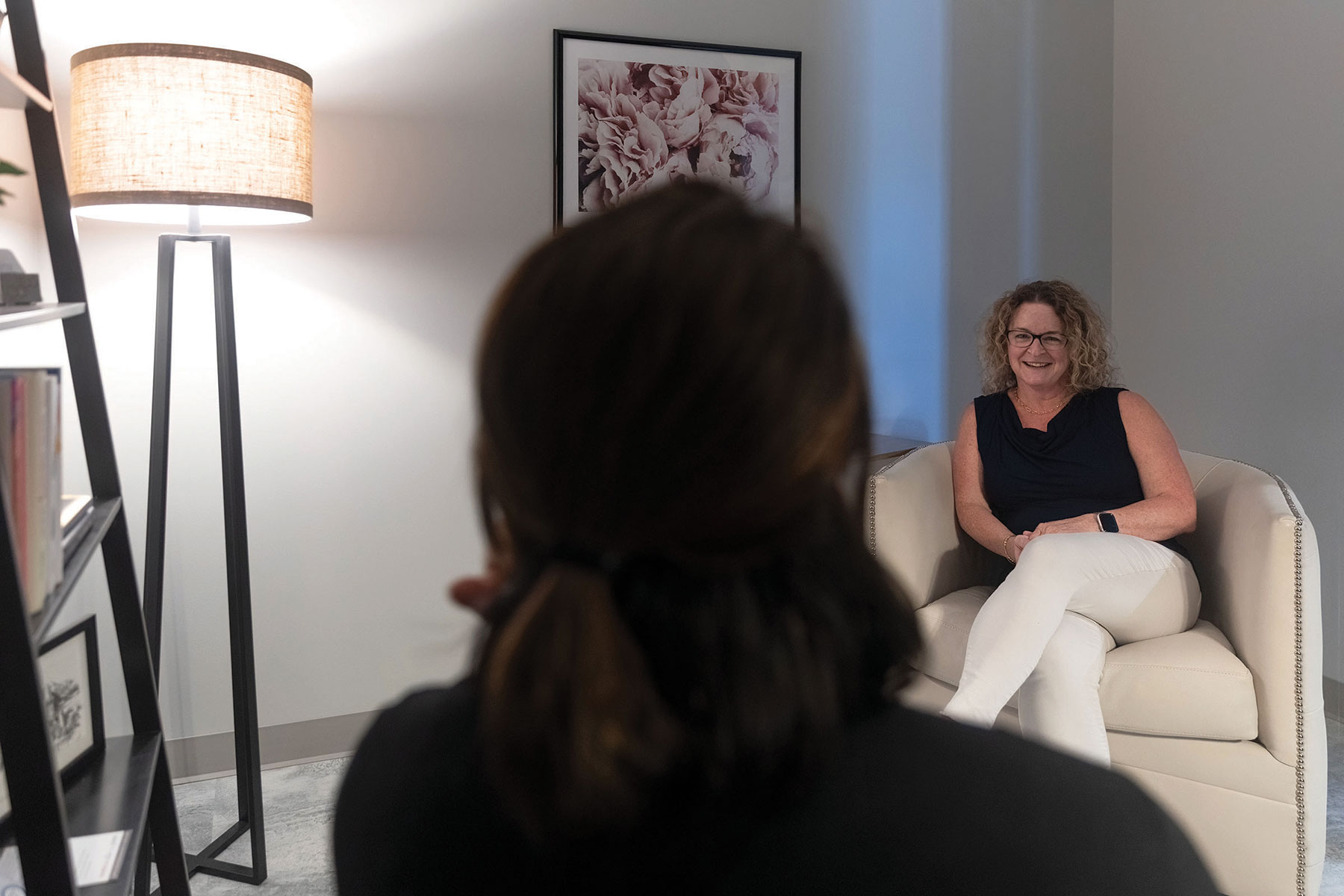
Back and forth sharing and education between patient and provider is an important aspect of care at Peri & Pause.
“It is lifting; it is Pilates; it is yoga; it is walking. Pure foods, good rest, keeping alcohol to a minimum. … We have to understand our bodies and how they need to move and operate differently. Our menstrual body responds differently because of the burst of fertility hormones, then during menopause, when our hormones almost go to zero, the body is looking for other things to help it work.”
Peri & Pause strives to help women receive evidence-based, informed care so they can embrace midlife with joy.
“We refine ourselves more; we continue to grow. We can really delve into our own interests without having the responsibilities (of early adulthood).
“There is so much joy that can come in finding new strengths, new likes, new gifts that we have not tapped into yet as midlife women,” Jamie says.




